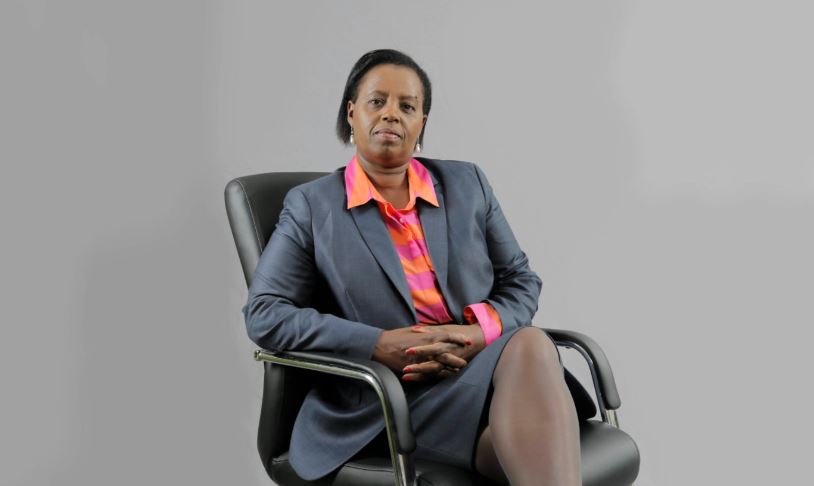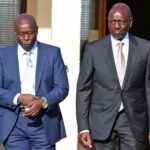
Many Kenyans of goodwill appreciate that resource mobilisation and fundraising during a pandemic is an uphill task, especially when both individual and corporate citizens are in distress. Your board must be facing lots of challenges. Recently, we have witnessed families coming forward to seek assistance to clear medical bills running into millions of shillings in private hospitals when their kin succumbed to Covid-19. Some of them were rushing against time to bury the victims as per the prescribed protocols from the Ministry of Health, key among them being time. Madam, can your board come to the assistance of such families? Komen Moris, Eldoret
Upon the board commencing its mandate, it conducted wide-ranging consultations with relevant stakeholders and identified the immediate priorities as; (a) Supporting the government’s efforts in the procurement of medical supplies and equipment and (b) Welfare support to the vulnerable communities and individuals. These are the current areas of focus. However, we are aware of the novel challenges posed by the pandemic and as a board, we are amenable to considering such requests. We appeal to Kenyans to observe laid-down guidelines and protocols as issued by the Ministry of Health.
It is in the public domain that your board is largely made up of top business and corporate leaders, including yourself but understandably so. Apart from resource mobilisation and fundraising, your board procures the required goods and services to deal with the current pandemic. Madam, how have you insulated this procurement process from conflict of interest from the same board members who may be tempted to award their companies or institutions tenders for such goods or services? Komen Moris, Eldoret
We confirm that the procurement process has been above reproach and any such instance of conflict of interest has been addressed with utmost professionalism. Over and above this, the board sanctioned the appointment of members with requisite expertise and proficiency into its procurement committee after subsequent vetting by the secretariat, domiciled in the Executive Office of the President. Worth noting is that the entire procurement process is further subjected to continuous integrity checks and scrutiny by the secretariat to assure efficacy in the value chain as well as audit verification.
In the wake of the prevailing Covid-19 pandemic, many well-meaning individuals, corporates and other entities have come out to donate to the board. However, from experience, such initiatives have in the past suffered unrivaled misuse and unexplained loss of funds because of weak accountability measures. What guarantee do you give to Kenyans that a similar fate will not befall the board/committee you chair? Kennedy D. Njuguna, Kiambu
The board is committed to fulfilling its mandate with utmost transparency and good corporate governance. To this end, the board is working with professional service firms PwC Kenya, KPMG, Deloitte Kenya and EY Kenya who have been brought on board to support operations and activities and are providing pro-bono assurance services.
In Liberia, the government has established a ‘National Youth Task Force against Covid-19’ as part of the efforts to help contain the disease. In Gambia, young entrepreneurs with tailoring skills are being engaged to help meet the urgent demand for protective face masks. What is your board doing to support, engage and provide opportunities to the Kenyan youth? Raphael Obonyo, Nairobi
The board receives requests for consideration of various Covid-19-related innovations and skill sets for incorporation into the fund’s framework and our secretariat considers such applications and where feasible liaises with the relevant board committee for propriety assurance and approval. In addition, the board has approved a criterion that ensures procurement opportunities are considered for persons falling within the access to government procurement opportunities category.
When the fund was established, there was constant publicity on donations to support Kenyans in cash and material form. This is no longer the case. Have donors dried up or suffered fatigue? Shem Onderi, Kisii
During the inception days of the board, indeed there was constant publicity with corporates and individuals making both cash and in-kind contributions. The fanfare has dwindled and understandably, considering the renowned corporates already contributed and given the current circumstances, organisations are not getting expected profits owing to low work output and returns.
What plans are in place to make the fund well-resourced and sustainable? Shem Onderi, Kisii
The fund was established with a clear-cut and primary mandate of mobilising resources towards containing the spread, effects and impact of the pandemic. The funds we mobilise are continuously expended in line with the board priorities. Once the funds deplete with no indication of raising more resources, the board will formally communicate to the appointing authority. However, the Personal Protective Equipment (PPEs) purchased and distributed to designated facilities are expected to last 18 months as part of a medical sustainability plan.
I can hardly claim to remember everything that took place during the commencement of the Covid-19 Emergency Response Fund and therefore I beg to pose the following question: Was there a proposed amount the board would need to raise, and the sources? If so, where are we with the target? How much money has gone into use and how much more is still needed to hit the target? Francis Njuguna, Kibichoi
Upon inauguration of the board, there was no proposed nor set target amount. The process was totally dependent on the goodwill and generosity of Kenyans with the expectation that the appointed board members through their various networks and platforms would steer resource mobilisation, which duty has been discharged commendably. The board has so far expended approximately Sh700 million.
It has been publicly announced that the government would support the cause through voluntary salary cuts by public officers as well as monies that have been confiscated as proceeds of corruption by the relevant anti-corruption agencies. How much has so far been raised through this and how is it being expended? Leone Karani, Nairobi
The board does not account for the monies that have been raised through the voluntary salary cuts by government officers and did not receive the monies owing to proceeds of corruption. It is worth noting that such monies were given to the National Treasury and subsequently channelled to the account held at Central Bank of Kenya, which is a totally different account from the fund account held at Absa Bank. In consideration of the foregoing, I am unable to respond to this question.
So far donations made through the board in cash and kind stand at tens of billions. However, sustainability of this venture is a big pending question considering that donors will at some point become fatigued even as the infections increase. What assurance can you give to hunger-stricken Kenyan households that the national government, county governments and corporates will not forsake them in their hour of need? Dan Murugu, Nakuru
We can neither speak for the national government nor the county governments. There are appropriate communication channels for that purpose. However, on behalf of my board, the assurance to vulnerable Kenyans is that the money committed to welfare support will be utilised for the intended purpose to cushion the affected Kenyans in a manner that also stimulates the local economy. The board sanctioned the Cash Transfer Relief Programme, which aims at reaching 100,000 vulnerable Kenyans in informal settlements at a weekly rate of Sh1,000 over a period of one month.
There are serious disjointed approaches to address the current crisis in the country. In the counties, corrupt officials and busybodies have taken over relief food distribution in a very questionable manner and possibly it will not be possible to account for all the assistance disbursed by the national government. How do you plan to tackle poor coordination and lack of integrity in this noble venture? Dan Murugu, Nakuru
The coordination of relief food for distribution at the counties is the mandate of the national government and I will not speak about it. I would, however, think that given the circumstances and the dire impact of the pandemic, necessary mechanisms and adequate measures will be explored to ensure coordination and integrity.
There are murmurs and complaints from some quarters that help either in cash or food is not going to those who really deserve it. In the informal settlements especially, some residents who deserve help say they are yet to get this bailout that the government has promised. My question is: who determines or who guides your board in ensuring that help trickles down to those who really need it? Second, do you believe those you trust to hand out the assistance at the county level whether the provincial administration, Nyumba Kumi officials or all the others are doing what is required of them? David M. Kigo, Nairobi
The board has a welfare committee that collates information on the vulnerable Kenyans, which is then subjected through a vigorous check and verification process to assure vulnerability, for subsequent disbursement through the MPesa platform. In addition, the distribution of in-kind donations (food and sanitary relief) is coordinated through the board’s secretariat and from the collated data set and trend, the secretariat is able to advise goodwill donors on informal settlements less supported for donation purposes. To this end and considering the enumerated processes, we trust that the relief reaches the intended beneficiaries.






